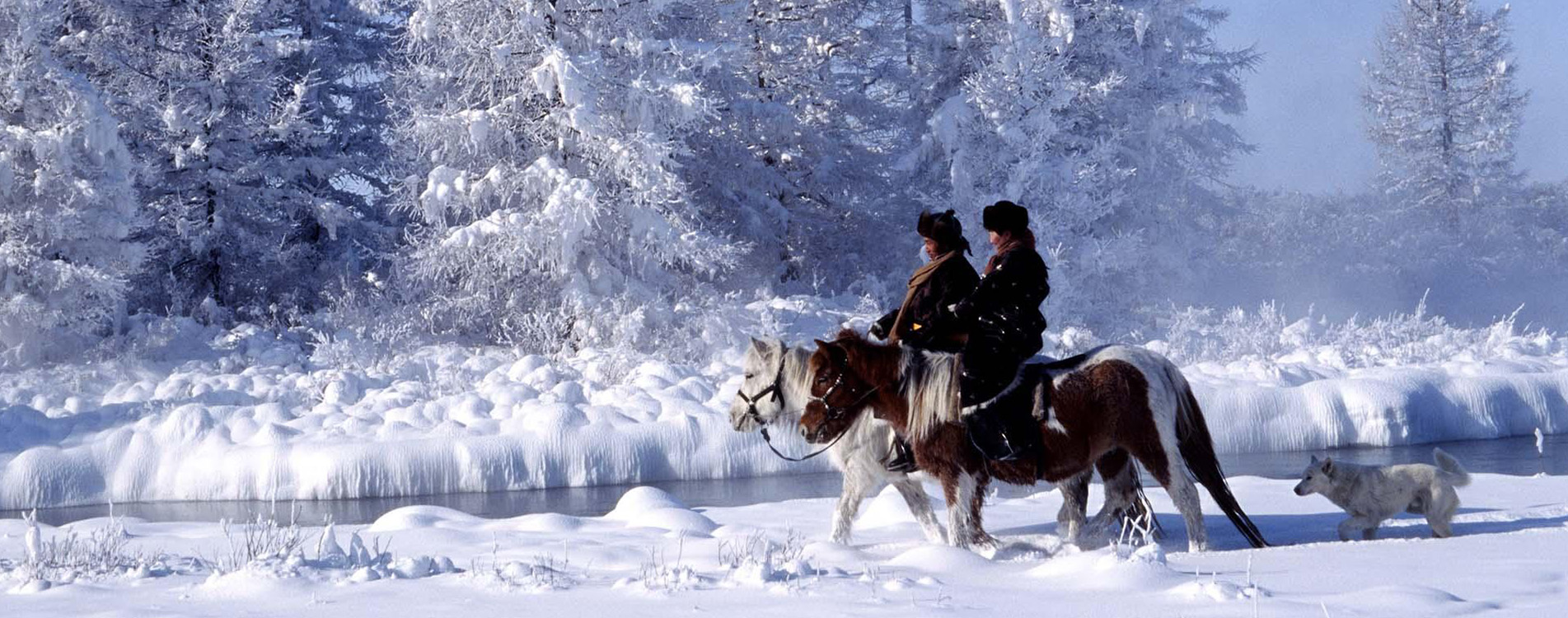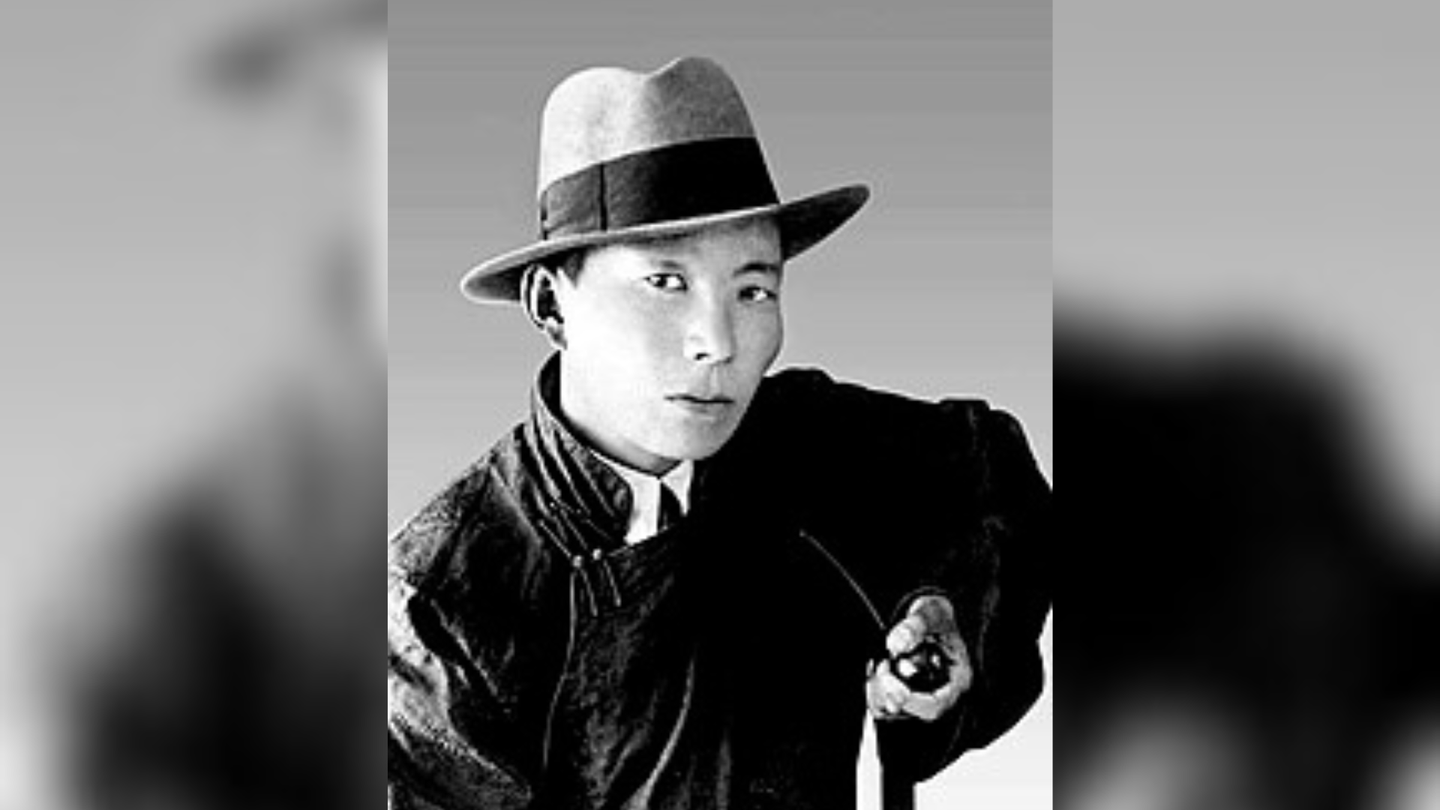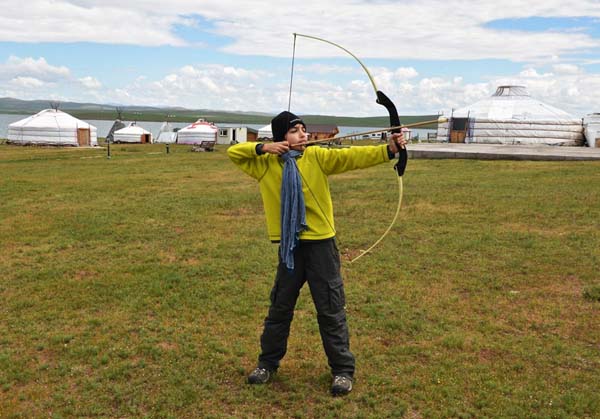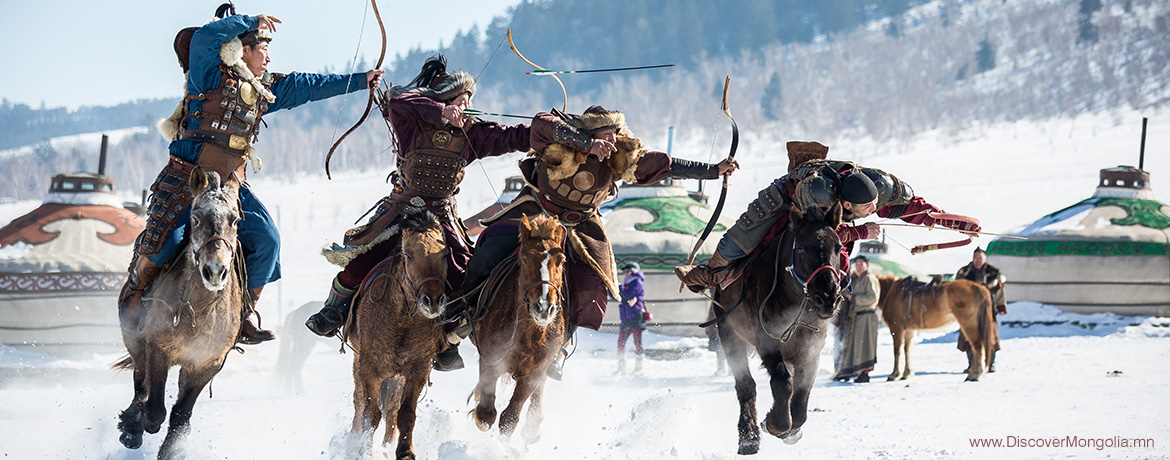

One of the greatest writers of Mongolia, NATSAGDORJ Dashdorj. Many of his novels and poems have been popular and highly appreciated through the years and were translated and published in many countries around the world. He was one of the founders of Mongolia’s contemporary literature, introduced new genres and subjects through his works, brought another light to the society, and inspired people with a vision of freedom. Although he has lived for only 31 years, his great contribution to the society and arts and culture development of Mongolia is invaluable.
Out of many of his works, we selected three short stories. These and more other Mongolian stories were translated and published on “Mongolia” Magazine and later edited by Henry G. Schwarz and published by the Center for East Asian Studies, Western Washington University in 1974.
Through this short stories, you can learn cultural and political changes and how things were at that period, difficult times that we were going through, and yet lots of Mongolian words such as deel (traditional outfit) or ger (dwelling).
SON OF THE OLD WORLD, 1930. D. Natsagdorj
Life in the steppe is monotonous. The days drag on, one being very much like the next. In the tussocky, marshy steppe near a well, the smoke can sometimes be seen curling from a faded ger. The endless white mist all around saddens the heart. Scorching the felt ger, the sultry summer heat deadens the cattle-breeder's thoughts. The earth surrounding the nomad ger is spotted with the flat cakes of cow manure. Here and there some little calves frolic.
From their very childhood to old age people dwelt close to a single river and roamed up and down its banks. Their entire life centered around one well. Gavji Jambal squatted forever in a front corner, babbling about God and the scriptures. Zaisan Namji1 would arrive and talk about all sorts of things concerning the laws. Listening to them the Mongols thought that there were no villages beyond the mountains and that the horizon was the end of the earth. They knew nothing of what was going on in the world. Living in their remote corner day after day, the Mongols prayed to God in the mornings and in the evenings bowed to the sky. They lived this way until they died.
The son of the old world drove up to the ger at a trot. Tied around his head was a white cotton kerchief, and a few hairs broken loose from his tousled black pigtail hung across his cheek. His torn, threadbare sleeves revealed two rough, gray elbows.
Jumping down lightly to the ground, the rider firmly tethered his horse, wiped the perspiration off his sunburned face with the flap of his deel and walked into the ger. He had hardly stepped inside when he began telling that the Baldans were fulling felt that the Tsendas were grazing sheep at the saltmarsh, that Damba had gone to look for his horses, and that Gombo had returned from his trip to Khangay. Then, having told other bits of news about people they all knew, he walked over to the hearth. He now cast a meek glance at the gavj1 and zaisan and gave them a low bow. Having been given a bowl of sour milk and a hunk of khusam, he squatted down near the open fire and began to eat.
After finishing his meal, he walked out of the ger and directed his steps to the house of the rich man Baljir where he would look after the foals while the mares were being milked. For this he got some mare's milk which he drank up on the spot. Half a day passed in this way. In the afternoon he helped shear somebody else's sheep and was fed some offal. And now the afternoon was drawing to a close.
By nature the son of the old world was not a dull-witted person; his life, however, passed within the confines of but three or four ortoo. He had never had occasion to go as far as the border of the eastern khoshuun nor had he been on the bank of the western river. How much could he therefore see or hear?
He was young and strong but, having remained a poor orphan in his childhood, he was compelled to hire himself out to his neighbors and so lost the road to a more worthwhile life.
In the cold winters he guarded horses at night, and in the hot summers he herded sheep. The life he led in the steppes day in and day out was a dull and monotonous existence without a glimmer of light. It was like living in an overturned cauldron and seeing no more of the world than the marmot who hibernates in the winter and crawls out of his burrow only in the spring. He could not imagine any other life than the roaming from one pasture to another spring, summer, fall and winter. He knew of no other truth except the words of his ancestors and his elders. What a blighted and ignorant life! How his young years had been wasted! Why then did he not seek a new world?
But how could the son of the old world by himself grasp the sad conditions of his existence, how could he see the injustice of the rule of the feudal lords and lamas? Living according to their ancient customs, mistaking suffering for happiness, gloom and ignorance for prosperity, a whole people most of whom, like the son of the old world, closing their eyes and ears, were unaware of the world and had nearly forever remained cut off in their desolated steppe.
However, ever since the day the marvelous man had made a revolution in the north, rays of light penetrated beneath the overturned cauldron. The Mongolian people were awakened from their slumber. Everybody now learned that there was more land beyond the horizon, that there were five oceans and five continents. The road to a new world was opened to the people, the road to development. The son of the old world became the son of the new world. Happiness and rejoicing were now the lot of the people!
A SWIFT-FOOTED HORSE, 1930. D. Natsagdorj
It is interesting to watch a mirage quivering and ripping in the distance, but it is hard to determine what the tiny dots are that shift in the haze. Only when you come closer do you see that they are horsemen racing across the plain. Racing is the favorite sport of plainsmen, and a fast horse fills every Mongol with admiration and delight.
Pulling hard on the bit, Surenhuu dashed to the winning post. He wiped the lather from his horse and lit a cigarette. The graceful dun horse, its sides heaving so that the ribs stood out, pawed the ground with its graceful legs and shook its beautiful head. From time to time it tossed its head high until it appeared to be ready to take off for the clouds. It moved its ears. Surenhuu's heart swelled with pride at having such a horse.
Other riders came racing up. They admired the horse and called it Shuvuun Saarai [Swift-footed Horse]. They begged Surenhuu to sell them the horse, offering him the price of several young horses. Surenhuu refused.
"I don't want to sell him," he said, running his hand over the horse's head.
All the men discussed the merits of the horse. Only toward the end of the day did they ride off into the rays of the setting sun in groups of two and three, heading for home. When they halted on the way they continued to discuss the horse.
The first rays of the morning sun lit up the sky, and the moon, a sliver arched like an eyebrow, vanished. Autumn hoarfrost glittered all around. The peaks of the mountains loomed in the distance. Surenhuu stepped out of his ger, saddled his horse, and galloped off toward the west.
By the time the sun rose, Surenhuu had crossed several hills and rivers. Seated carelessly in the saddle, he was trying to cover a distance of two days' travel in one. He wanted to reach a distant aimag by night. Shuvuun Saaral was going at a fast trot, his bridle jangling.
Man and horse sped across the plain. It was a clear, sunny day, with a gentle breeze ruffling the grass by the roadside. Far ahead, a herd of antelopes swept like a wave across the road. In the far distance there was a glimpse of a nomad camp. That was where Sunjidma lived.
Surenhuu and his horse swept past the neighboring aimag. It was all so interesting — hills and rivers they had never seen before. Horses and cattle were grazing everywhere. They passed gers beside which milch mares were neighing. It was time for airag and feasting, but where was the time to stop by and make merry? Surenhuu was not interested. He was in a hurry, and so he galloped past without halting. Shuvuun Saaral was tearing along as swiftly as he had in the morning. His graceful legs raised clouds of dust. The nomad dwellers, young and old, gazed in surprise after the horseman flying ahead on his beautiful horse.
But Surenhuu had already vanished from view. The closer he came to the camp the more excited he grew. He rejoiced at the thought of seeing Sunjidma again. It was rapidly growing dark and the moon had not yet come up. In this unfamiliar locality he could only trust to his swift-footed horse. No matter how Surenhuu strained his eyes he could no longer make out the hills in the distance and could only depend for direction on the stars in the sky. He halted to get his bearings. At that moment a light flickered close by.
Again Surenhuu's heart leaped with joy as he drove his horse forward. Nothing interfered with his swift onrush. Sparks flew from the hooves of his steed. Soon he came to two or three gers huddled at the foot of a hill. Sunjldma emerged from the first ger to quiet the dogs. Her sweet face shone in the gloom of the night.
BITTER TEARS ON NEW YEAR'S EVE, 1932. D. Natsagdorj
Myadagma, the landlord's daughter, would allow Tserma to put on one of her old worn deels for the holidays. Having beaten the mattresses, she picked up the rubbish into a basket, placed it on her back and headed toward the gate. People were carrying gifts and foodstuff wrapped in white cloth. Tserma went past them with the basket on her back but did not make way for them. The merchants cried out angrily:
"What's the matter with you, are you blind or something? What are you shaking your dirt and trash on our gifts for? What a dumb girl!" Anybody who felt like it could order Tserma around.
After the girl carried out the trash and returned, Myadagma again called out to tell her to take out some more trash. Then in the afternoon firewood had to be sawn. It's very hard to saw alone. At that moment, Tsui tern, a young man who was watering horses in the yard next door came up to the fence and looking through a crack, called Tserma.
Tsultem and Tserma, working for the owners of two neighboring ger were in love with one another, but their masters did not take their love seriously, convinced that "the common people don't know happiness, and the poor can't love." They made fun of the young couple and wouldn't even allow them to meet.
Suddenly a man came up to the gate. Seeing her boyfriend, Myadagma quickly came forward to meet him. Holding hands, talking cheerfully and laughing, they went toward the ger. That was when they caught sight of Tserma at the fence.
"Hey, what are you doing there?" Myadagma called, ridicule in her voice.
Hearing those words, Dagdan's wife threw open the felt ger door and came rushing out shouting, "What a rotten good-for-nothing! Now why aren't you sawing firewood, you dumbbell?"
This time Tserma screwed up her courage and replied, "Sawing alone takes too long and I'd have no time to do the other chores, so I asked Tsui tern here to help me."
"Well, then don't waste any time and start sawing," Dagdan's wife retorted and went back into the ger.
Tserma was happy; Tsultem could now enter Dagdan's yard and saw together with her.
Dusk began to fall. The weather got worse and fluffy snowflakes started coming down, but Tserma and Tsultem kept on working, the rasp and whine of the saw merging with the strains of a shanz coming from the warm ger where Myadagma was enjoying herself with her boyfriend. This made the hired hands a bit sad, but they went on sawing, every once in a while blowing on their frozen fingers to keep them warm. They kept saying gentle and loving things to each other, trying to hide the depth of their suffering behind light remarks. It was all very touching. Tserma told him that her masters were getting special clothes and fine food ready for the holidays, and Tsultem told her about his master who had brought home a fine pacer from his herd. Suddenly Tsultem brought out a silk kerchief from under his shirt and handed it to Tserma. This little gift seemed to the girl a million times more precious than Myadagma's new silk deel.
She told him sadly that with the approaching New Year there had been much more work to do and that her masters were all the time berating her for trying to meet him more frequently. As they talked and worked, time flew by. When they finished sawing, it was already late and Tserma had to start doing her housework. Parting with Tsultem, she entered the ger. There, in good old tradition, plates with meat dumplings, cold meat and other delicacies were laid out around the hearth. All this had been prepared by Tserma.
The guests in new holiday dresses were cheerfully getting ready to sit down and to partake of all these delectable tidbits. But Tserma saw the New Year in at the cauldron over the fire.
Myadagma brought in her silk deel and ordered Tserma to put it on, but Tserma said in a hesitant tone: "I'll put it on tomorrow," and laid it aside. Then she took out Tsultem's gift, the kerchief, and every once in a while pressed it to her face. Suddenly Dagdan's wife caught sight of the kerchief and cried out, "Where did you get that? That's probably from among our gifts."
It hurt Tserma to be so wrongly accused but neither could she readily admit that Tsui tern had presented it to her. And so she said nothing.
Many guests gathered that evening to see in the New Year. The ger was resounding with merry laughter and voices. Only Tserma was sitting sadly at the stove and sighing bitterly. She didn't get any sleep that night again; she had to do the cooking for everybody for the next day. The next day her master and mistress were going out and she had to prepare everything they needed. At the same time she managed to meet respectfully and serve all those who called at the ger. She somehow managed to pull through the next day, but in the evening guests arrived again. They made merry, drank a lot, and were noisy, played music, and Tserma cleaned up after them, making their beds, bringing in pillows for them, and so another night passed for her.
They were carousing at her master's ger for several days on end. Tserma was exhausted body and soul, but no one paid any attention to her, and she just had no choice. Only in moments when she was alone did she let her misery-laden tears flow. And only once in a while did she unburden herself by talking to Tsultem through a crack in the fence.
So two more years passed. Again New Year's was approaching. The Dagdans were planning to leave the city and move out to the steppe for some reason. The mistress wanted to take Tserma along with her. But Tsultem sneaked out one day, called her quietly and, when she came out of the ger, said to her, "Let's get out of here and live together."
Tserma was too excited to understand everything he said to her, but when she heard his last words she was overjoyed. She quickly gathered her few belongings and left with Tsultem.
Tsu1tem’s ger was black and tattered, but Tserma felt a million times happier there than in Dagdan's white ger where she had to sleep by the threshold. Now she would be able to get up when she wanted and do her own work and rest when people are supposed to rest. Now she would be living with her beloved Tsuitem.
Another New Year came around. Never since her arrival in the city had Tserma slept so peacefully on this festive night. In the morning she got up early and dressed. Her deel wasn't of silk and beaver but it was beautiful.
Official Source: https://cedar.wwu.edu/easpress/11/

